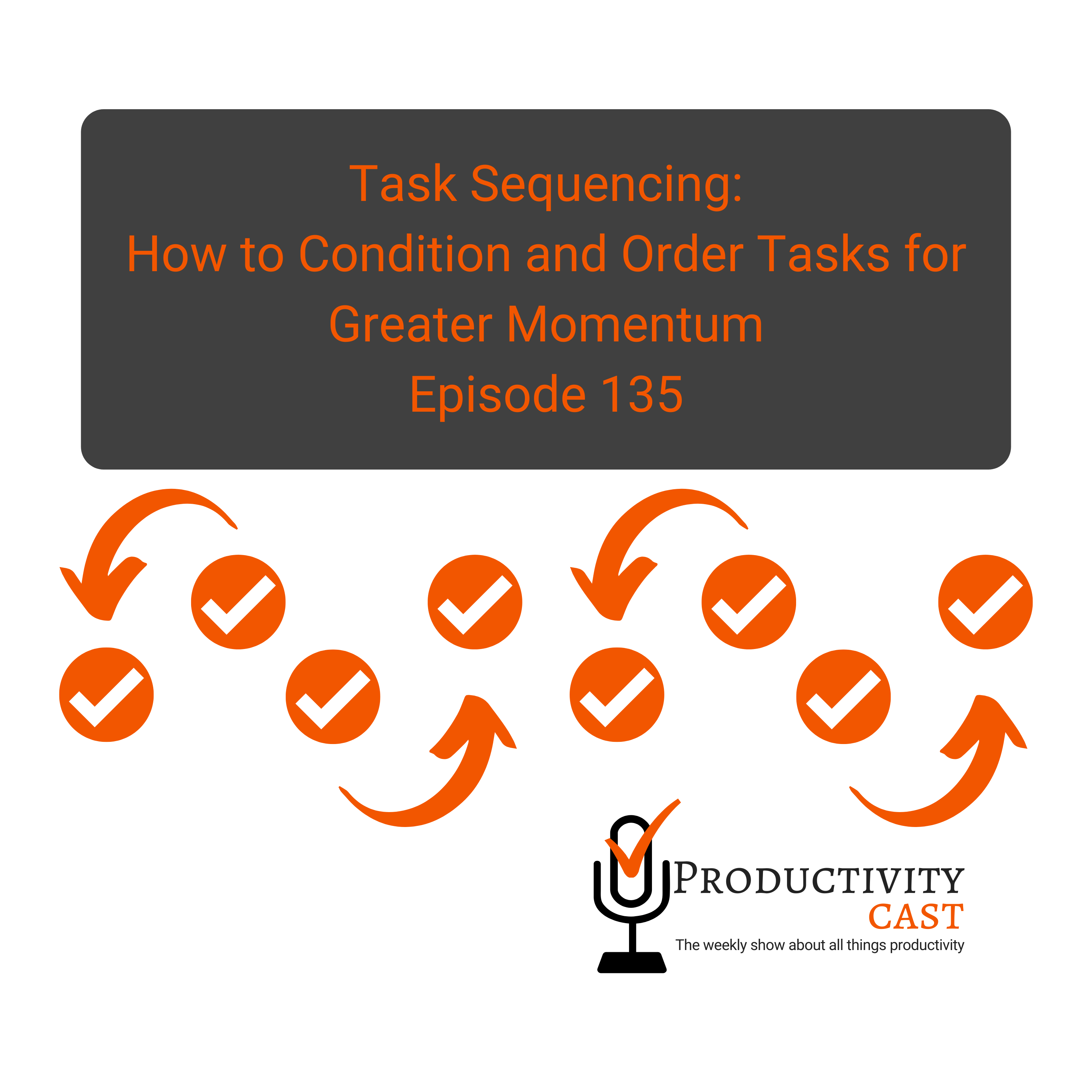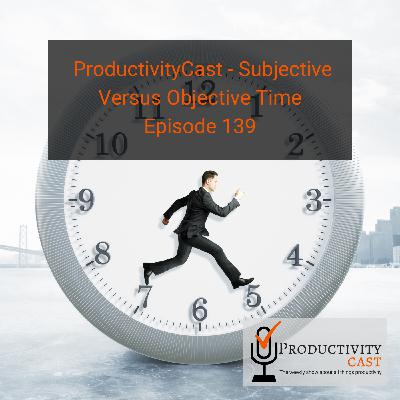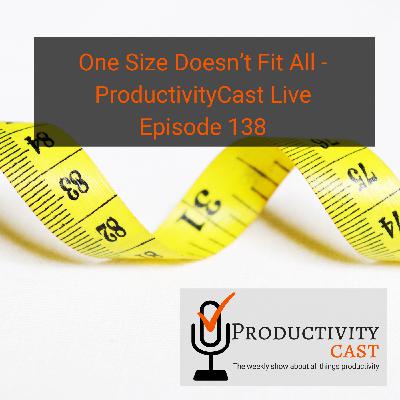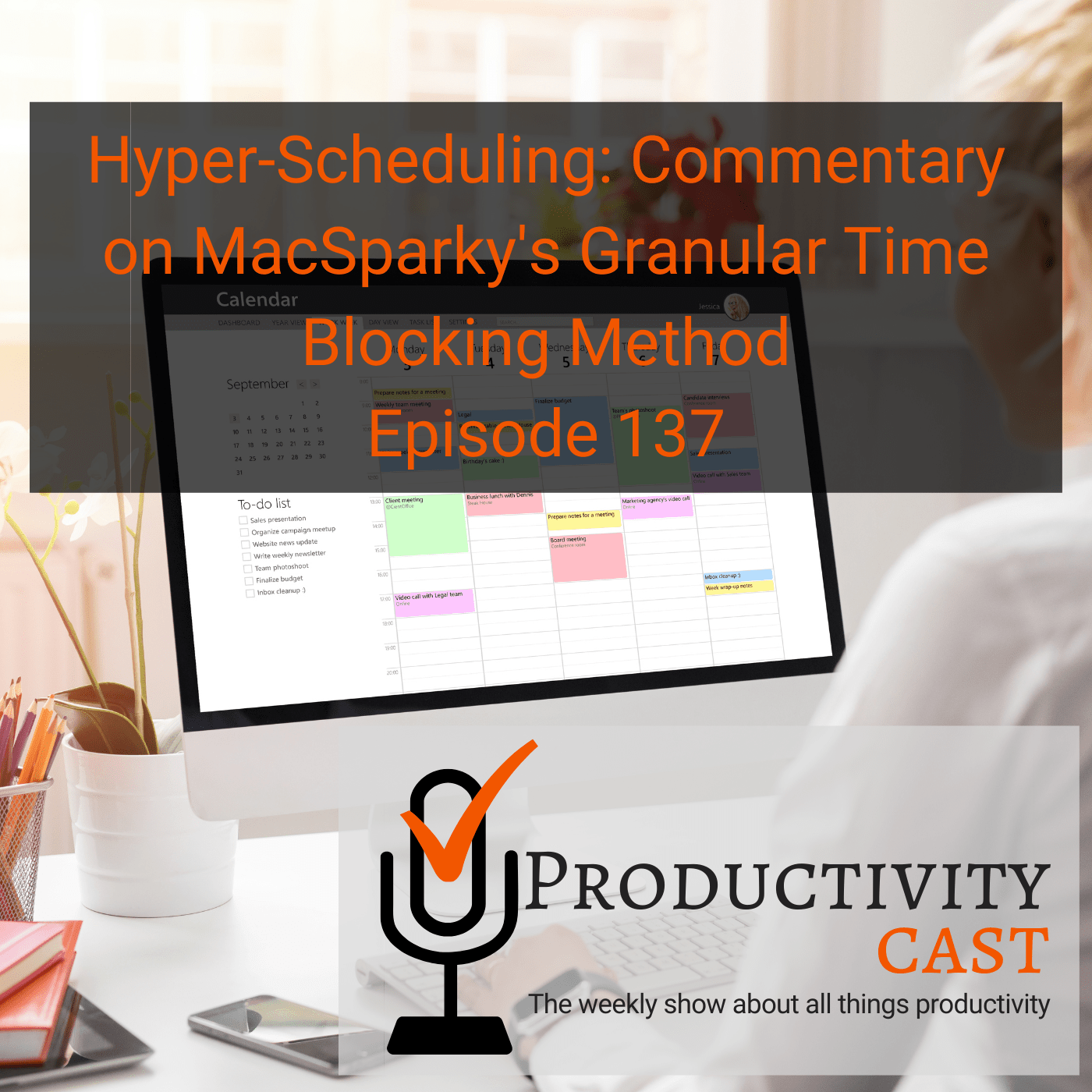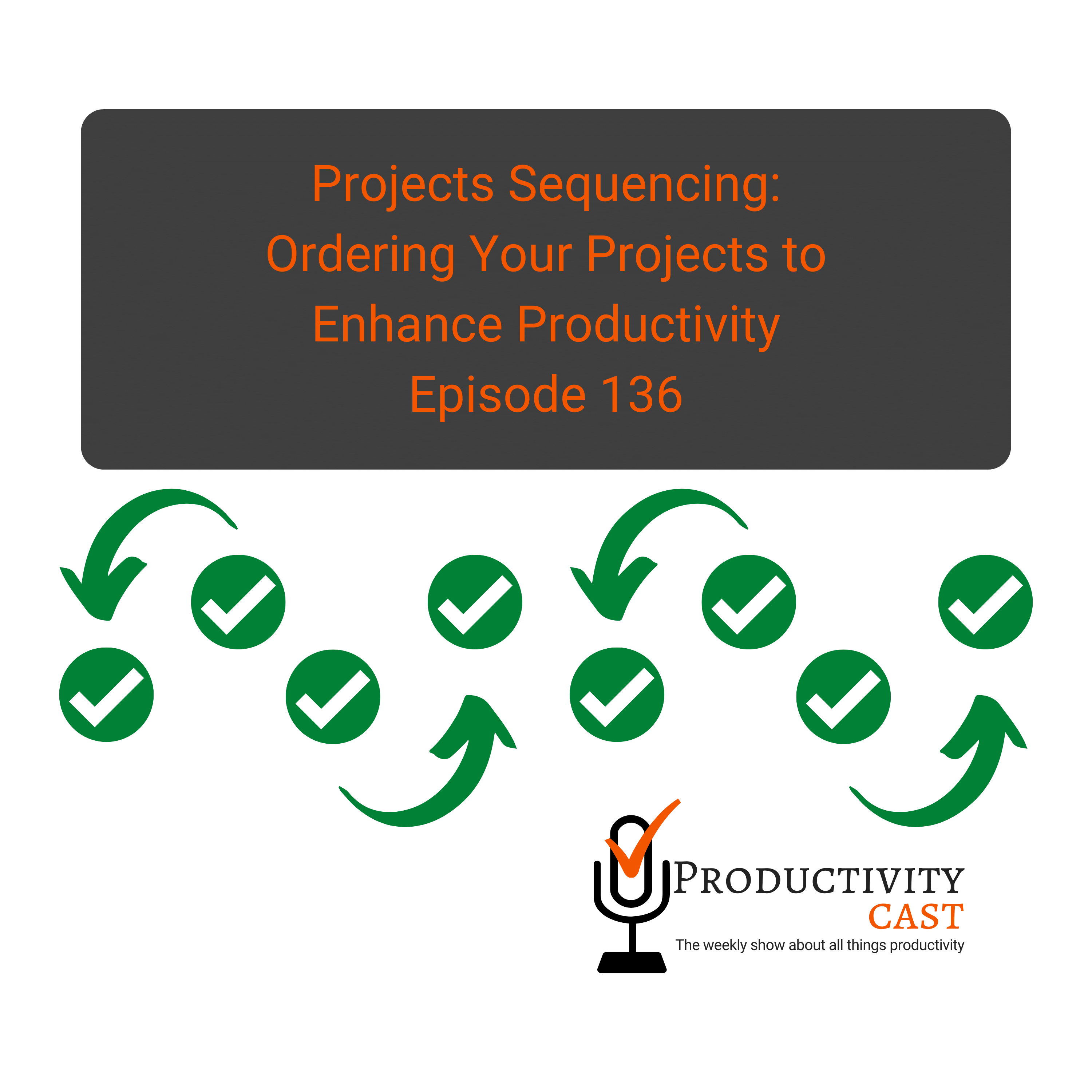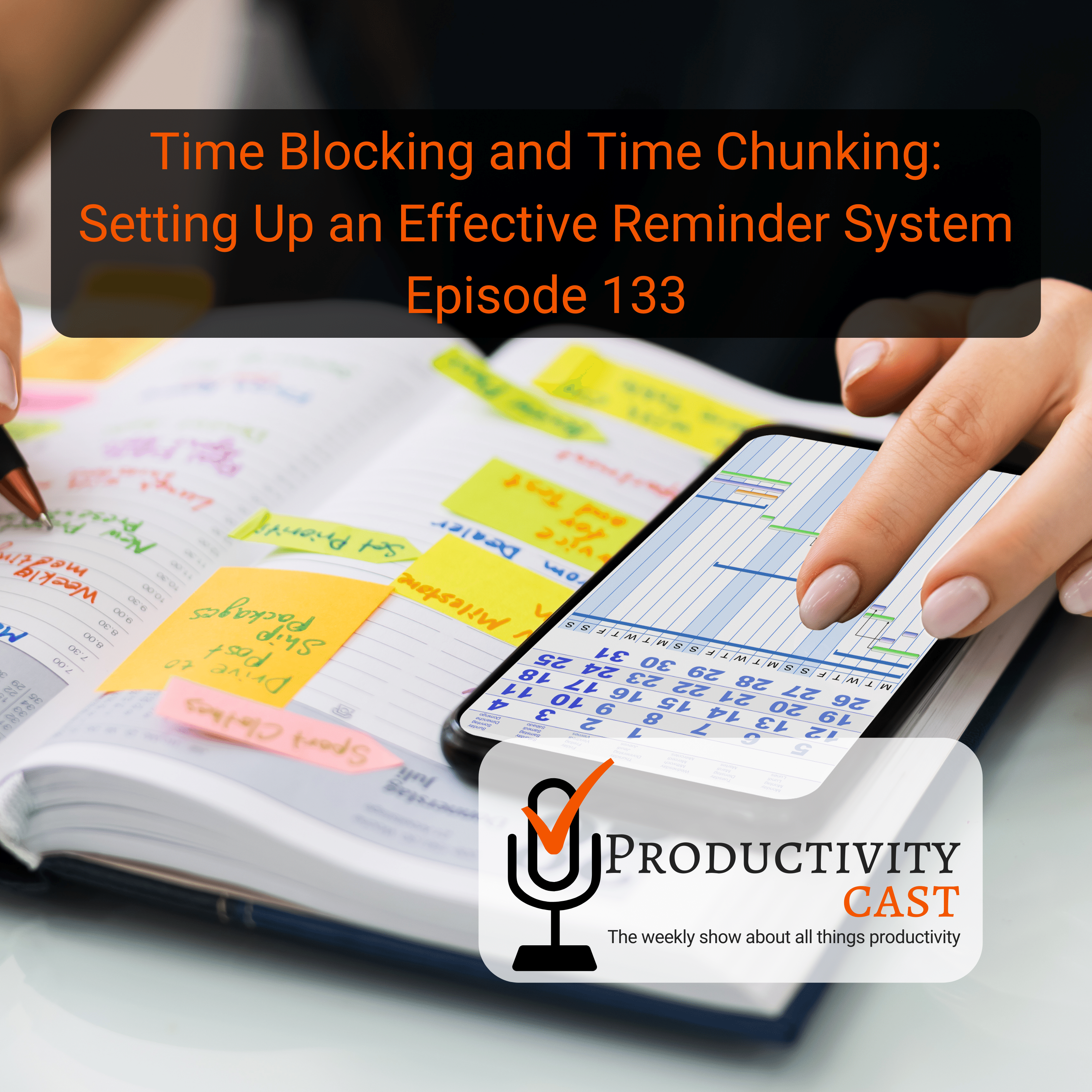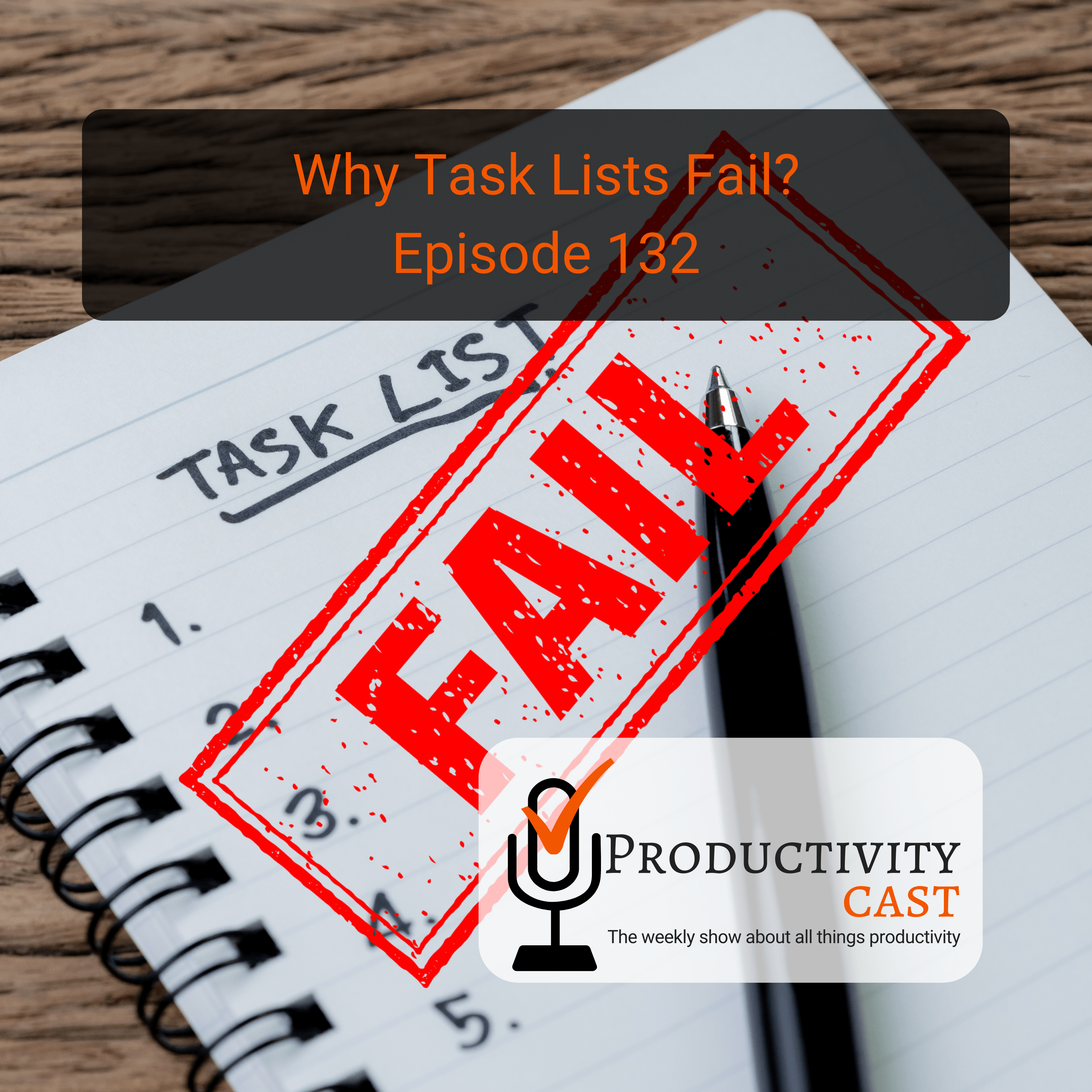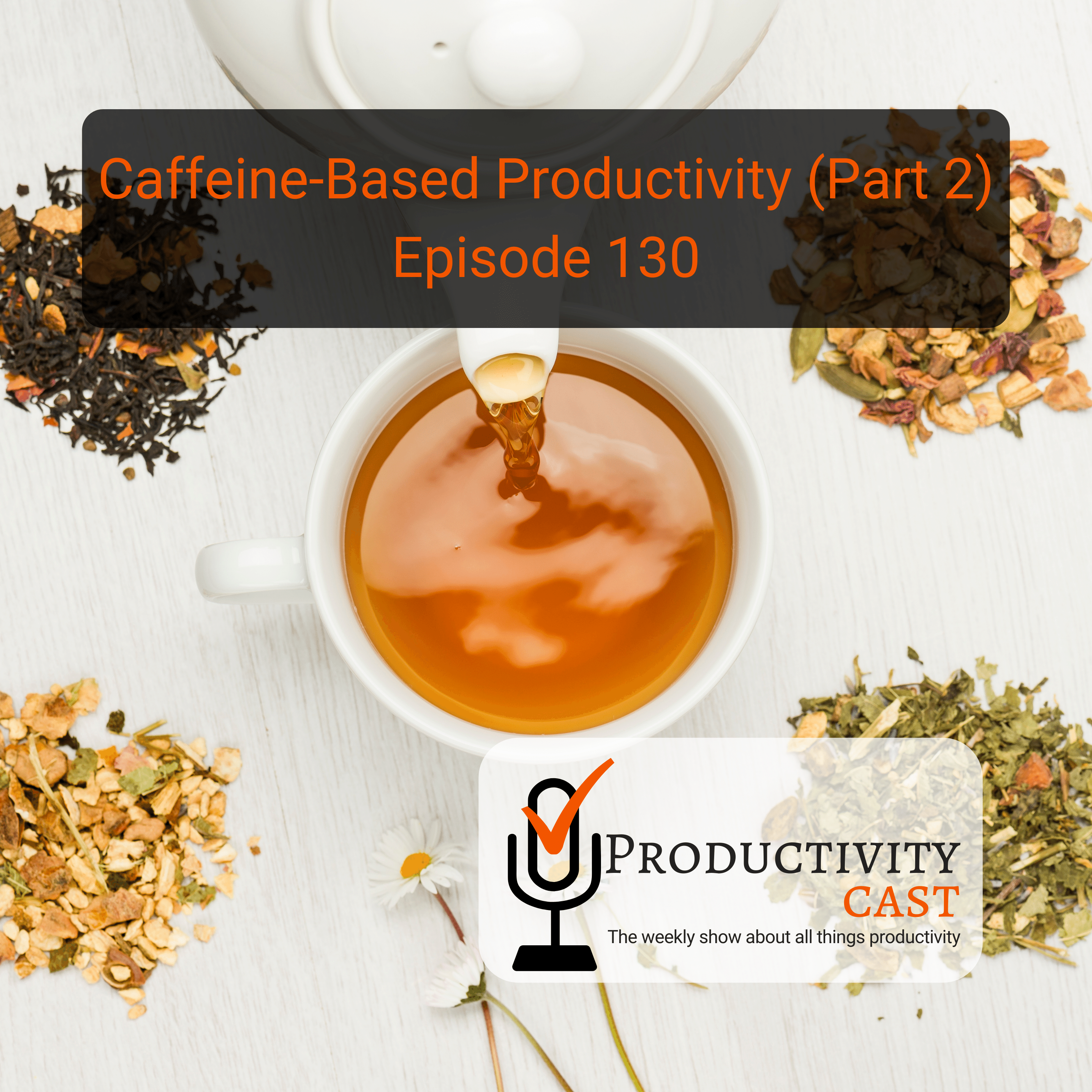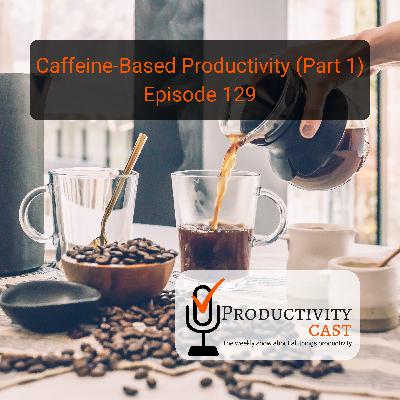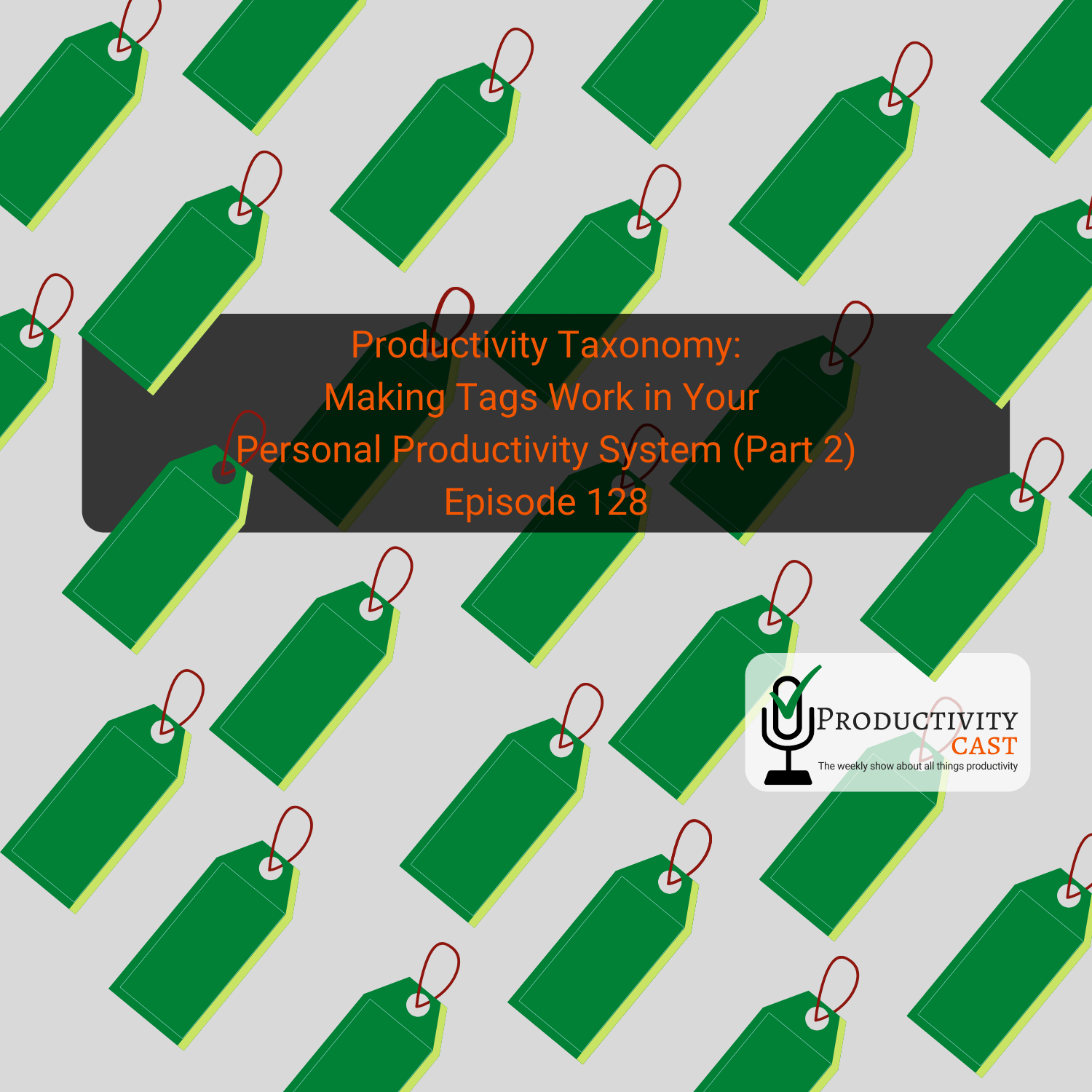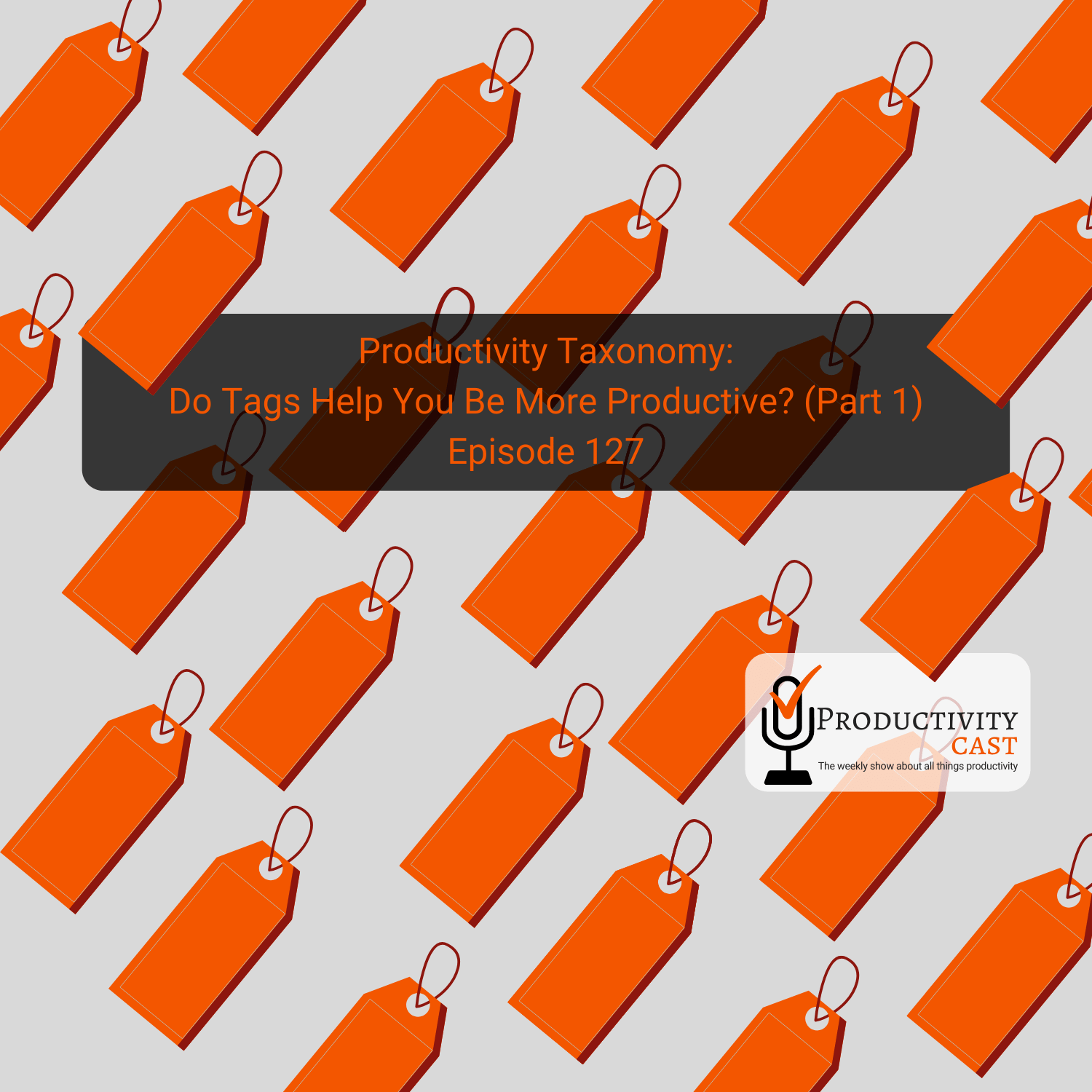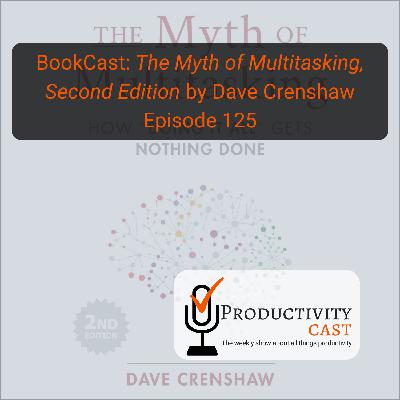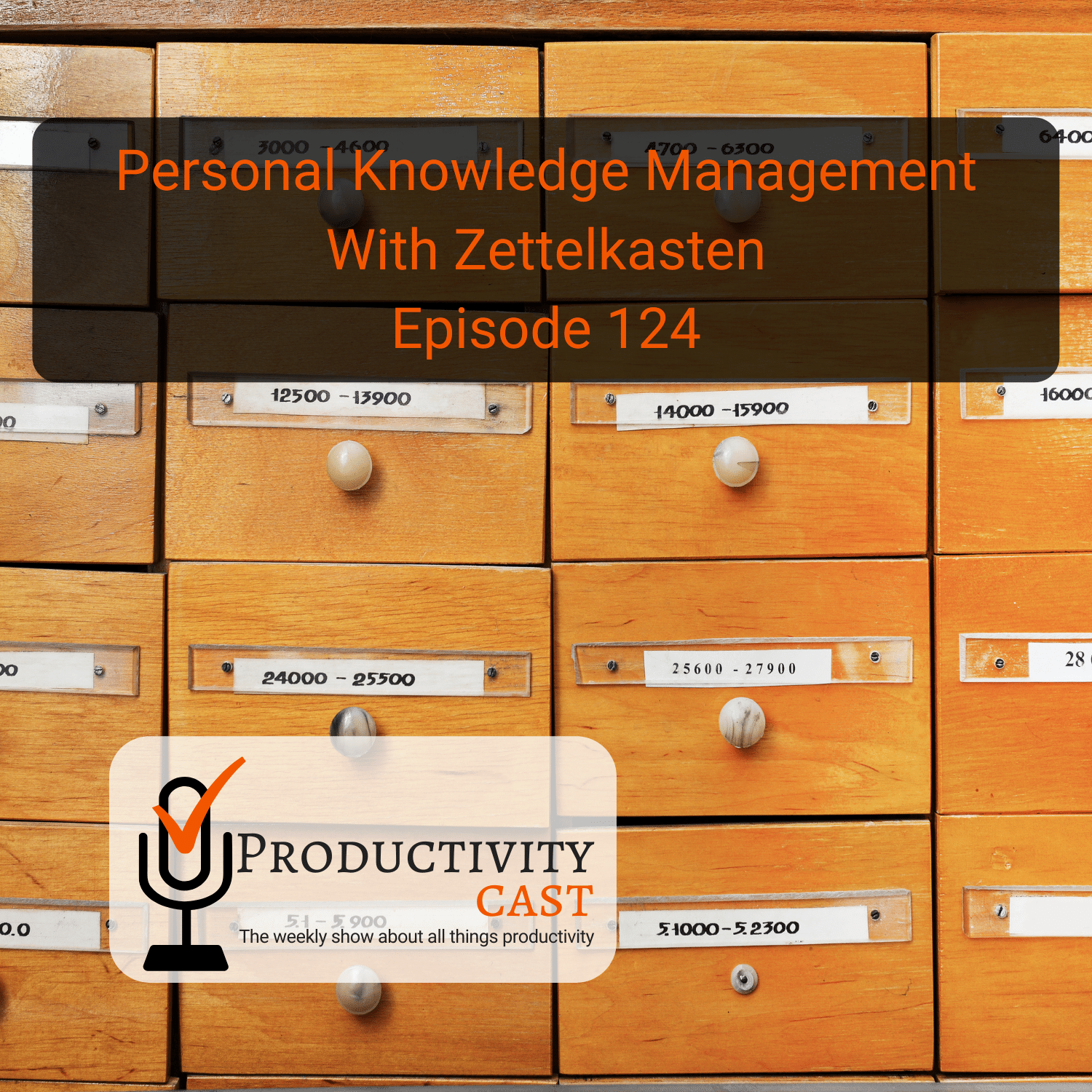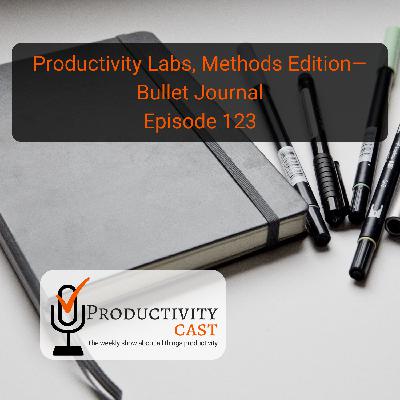Task Sequencing: How to Condition and Order Tasks for Greater Momentum
Description
This week, the ProductivityCast team tackles the topic of ordering tasks conditionally and task sequencing for momentum.
(If you’re reading this in a podcast directory/app, please visit https://productivitycast.net/135 for clickable links and the full show notes and transcript of this cast.)
Enjoy! Give us feedback! And, thanks for listening!
If you’d like to continue discussing Task Sequencing: How to Condition and Order Tasks for Greater Momentum, please click here to leave a comment down below (this jumps you to the bottom of the post).
In this Cast | Task Sequencing
Show Notes | Task Sequencing
Resources we mention, including links to them, will be provided here. Please listen to the episode for context.
- OmniFocus
- Any.do
- Microsoft Project
- Microsoft Teams
- Nozbe
- Todoist
- Temporal Structures in Individual Time Management – Wu Dezhi
- Remember the Milk
- IFTTT
- Zapier
- Unschedule
- GTD Weekly Review
- Join Ray’s Weekly Review Accountability Party on Fridays at 10:30 AM ET!
- Krisp
- Notion
- Paprika (grocery shopping app)
Raw Text Transcript
Raw, unedited and machine-produced text transcript so there may be substantial errors, but you can search for specific points in the episode to jump to, or to reference back to at a later date and time, by keywords or key phrases. The time coding is mm:ss (e.g., 0:04 starts at 4 seconds into the cast’s audio).
Voiceover Artist 0:00
Are you ready to manage your work and personal world better to live a fulfilling productive life, then you’ve come to the right place productivity cast, the weekly show about all things productivity. Here, your host Ray Sidney-Smith and Augusto Pinaud with Francis Wade and Art Gelwicks.
Raymond Sidney-Smith 0:17
Hello, and welcome back, everybody to ProductivityCast, the weekly show about all things personal productivity. I’m Ray Sidney-Smith.
Augusto Pinaud 0:23
I’m Augusto Pinaud.
Francis Wade 0:24
I’m Francis Wade.
Art Gelwicks 0:25
And I’m Art Gelwicks.
Raymond Sidney-Smith 0:26
Welcome, gentlemen, and welcome to our listeners to this episode of ProductivityCast. Today, we are going to be talking about something that I find to be fascinating, which is the order of operations, so to speak of tasks. And tasks. sequencing is interesting to me, because I think that when we deal with so many complexities in life, there are ways in which we can really order the tasks that we’re doing, not just for making them more effective, but also making them more efficient. And I think that it’s important for us to think through how we put things one in front of the other. And so I thought today, we would have a conversation around the idea of why would you condition tasks? Why would you sequence tasks, in essence, and then we could talk about maybe some of the examples and or pitfalls that we experience when we do task sequencing. And then we’ll close out with maybe some tips and tricks for you all to utilize when you want to jump start the process of task sequencing. So let’s get started with Why do you task sequence? Why would you want to do task sequencing,
Francis Wade 1:32
if we don’t think about task sequencing, we end up making mistakes, small mistakes, big mistakes, we end up arriving at places late because we didn’t start early enough, we end up with late deliverables, we end up being stressed, there’s a host of problems that we can create if we don’t do task sequencing correctly. And they all end up causing us emotional stress, the people around us come to realize that they can’t count on us. It’s loss of reputation, there’s just a whole host of problems that gets created when we don’t really pay attention. And we just do what we think we feel like doing in the moment. recipe for disaster.
Art Gelwicks 2:19
Task sequencing is one of those things that you don’t realize it’s important until you don’t do it. Because you go to plug into working on a particular task. And you realize that three other tasks before that had to be done first, for this one to be able to be executed. So being able to take the time to say okay, what, what’s the predecessor what has to occur to prepare this task to be able to be successfully completed? And then what are the next tasks that get triggered from this. And often we, we lose sight of that. And partially because it’s not a natural habit to think about the before and the afters. But the other thing is that most task management tools don’t support this kind of thinking. They don’t have any structure built into them. To have that transitional piece from task to task, you wind up doing it artificially through the organizational structure. So the outlines and nesting and things like that,
Raymond Sidney-Smith 3:17
I think that OmniFocus is really the only one that I know of that has a true conditional task feature built into it. Are there any others that you know of that that really, truly will basically only show a task after you complete one?
Art Gelwicks 3:31
Not without getting into the project management space that I’ve seen? I mean, most of that’s a much heavier lift, which it shouldn’t be that hard of a thing. I mean, to paraphrase, you know, top gears, Jeremy Clarkson, how hard how difficult could it actually be? Because all you need to do is provide a connection to the next task and ID. And maybe that’s the charge is that every task would have to have some sort of unique identifier. But I’m really surprised that most more applications don’t give you that option to say when I finished this, what’s the next task I want to do? And be able to designate that and say, Okay, here’s the next one in the sequence and the next one, because when we talk about flow states, when we talk about time blocking, these are perfect connections to that. And it just seems to be a blind spot in the task management applications that are out I will definitely
Raymond Sidney-Smith 4:28
say that I think that task sequencing is important, if you think about it from the perspective that we design checklists, because we want to know in say, any given known project, that we know the sequence, the order that those things should be done in one before the other. And many times what happens is we have the complexity of many different projects ongoing that has many different things that we need to do throughout any given day or week, and not knowing the order in which they’re going to happen. It creates a level of just inefficiency that causes things to break down. And also, you lose momentum in many cases. And so if you think about it, if you have to go to the grocery store, you would group the things you’re going to purchase, buy the areas of the grocery store, right, you’re not going to go, go get the milk in, and then walk, you know, to the other side of the grocery store, then walk back and get the eggs. And then you know, you’re going to when you’re in dairy, you’re going to get all the dairy items, you know, you get the milk, cheese, eggs, when you’re in the bread aisle, you’re going to get all of the, you know, grains. These are things that we naturally do in some areas of our lives. But for some reason, when we think about tasks, we don’t actually group things, or sequence them in a way that makes them to be more efficient. And that just creates more problems.
Augusto Pinaud 5:45
Yeah, only focus on that sense, as you were mentioned, was incredible in the sense that not only you could say, do not start this task, or show me these tasks on top. But you could also say, not only you cannot show to me until the prior one is ready, but also need to be after this date. And you could combine those two conditions, I have not seen anything that do conditions as incredible as OmniFocus. That’s the sad part was a collaboration. But from the condition perspective, and the fact that you could mix, conditional or non conditional in the same projects, and you could have part of the project who has those condi

